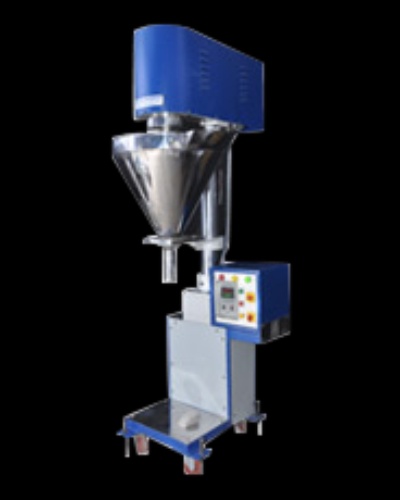Flour, a kitchen staple used in various culinary applications, requires efficient packaging to maintain its freshness and quality. Flour packing machines have emerged as a game-changer in the food packaging industry, offering a range of benefits for both manufacturers and consumers. In this article, we'll delve into the significance of flour packing machines, exploring the process, advantages, and considerations when selecting these machines.
The Flour Packing Machine: A Closer Look
Understanding the Flour Packing Process
- Weighing and Measurement: Flour packing machine begin by accurately measuring the desired quantity of flour. Precision is crucial to ensure consistency in packaging.
- Bag Formation: The packaging material, usually a type of film or paper, is formed into bags of the appropriate size to accommodate the measured flour.
- Filling the Bags: The measured flour is then filled into the pre-formed bags. Some advanced flour packing machines use auger filling systems for precise and controlled dispensing.
- Sealing: Once the bags are filled, the flour packing machine seals them to ensure airtight and tamper-evident packaging. This step is crucial for preserving the freshness and quality of the flour.
- Coding and Labeling: Some flour packing machines include coding and labeling systems to add essential information such as batch numbers, expiration dates, and branding.
Advantages of Flour Packing Machines
- Precision and Consistency: Flour packing machines ensure accurate measurement and consistency in each packaging, eliminating variations in product quantity and quality.
- Efficiency and Productivity: These machines significantly increase production efficiency by automating the packaging process. They can handle large quantities of flour in a short amount of time, reducing the need for manual labor.
- Cost Savings: While the initial investment in a flour packing machine may seem substantial, it leads to long-term cost savings. Reduced labor costs, minimized product losses, and increased productivity contribute to a favorable return on investment.
- Hygiene and Safety: Flour packing machines operate in a controlled and sterile environment, minimizing the risk of contamination. This ensures that the flour reaching consumers is safe for consumption.
- Customization and Flexibility: Flour packing machines offer customization options for packaging size, design, and material. This allows manufacturers to tailor their packaging to meet specific branding and consumer preferences.
Considerations When Choosing a Flour Packing Machine
Key Factors for Selection
- Type of Flour: Different flours may have varying textures and moisture levels. Ensure that the flour packing machine you choose is suitable for the specific type of flour you are packaging.
- Packaging Material: Consider the type of packaging material you intend to use—options may include paper bags, plastic bags, or a combination of materials. Ensure that the machine is compatible with your chosen packaging material.
- Production Capacity: Evaluate your production needs and choose a flour packing machine that can meet your required output without overburdening your operations.
- Automation Features: Modern flour packing machines may include advanced features such as automated bag forming, filling, and sealing. Consider the level of automation that aligns with your production requirements.
- Maintenance and Support: Choose a machine from a reputable manufacturer that offers maintenance support and spare parts availability. This ensures the longevity and reliability of your flour packing machine.
The Impact on the Flour Industry
Flour packing machines have had a transformative impact on the flour industry, streamlining operations and enhancing overall efficiency. The benefits of precision, productivity, cost savings, and customization contribute to the industry's ability to meet the increasing demand for packaged flour. Whether for large-scale flour mills or smaller businesses, these machines offer a competitive edge by ensuring quality packaging that meets both regulatory standards and consumer expectations.
Conclusion
Flour packing machines have become an integral part of the food packaging industry, providing a range of benefits that go beyond mere automation. These machines play a crucial role in preserving the freshness and quality of flour while optimizing production processes for manufacturers. As technology continues to advance, flour packing machines are likely to evolve, offering even more sophisticated features and increased efficiency. For businesses in the flour industry, investing in a reliable and well-suited flour packing machine is not just a matter of convenience but a strategic move to stay competitive in a dynamic and demanding market.


No comments yet